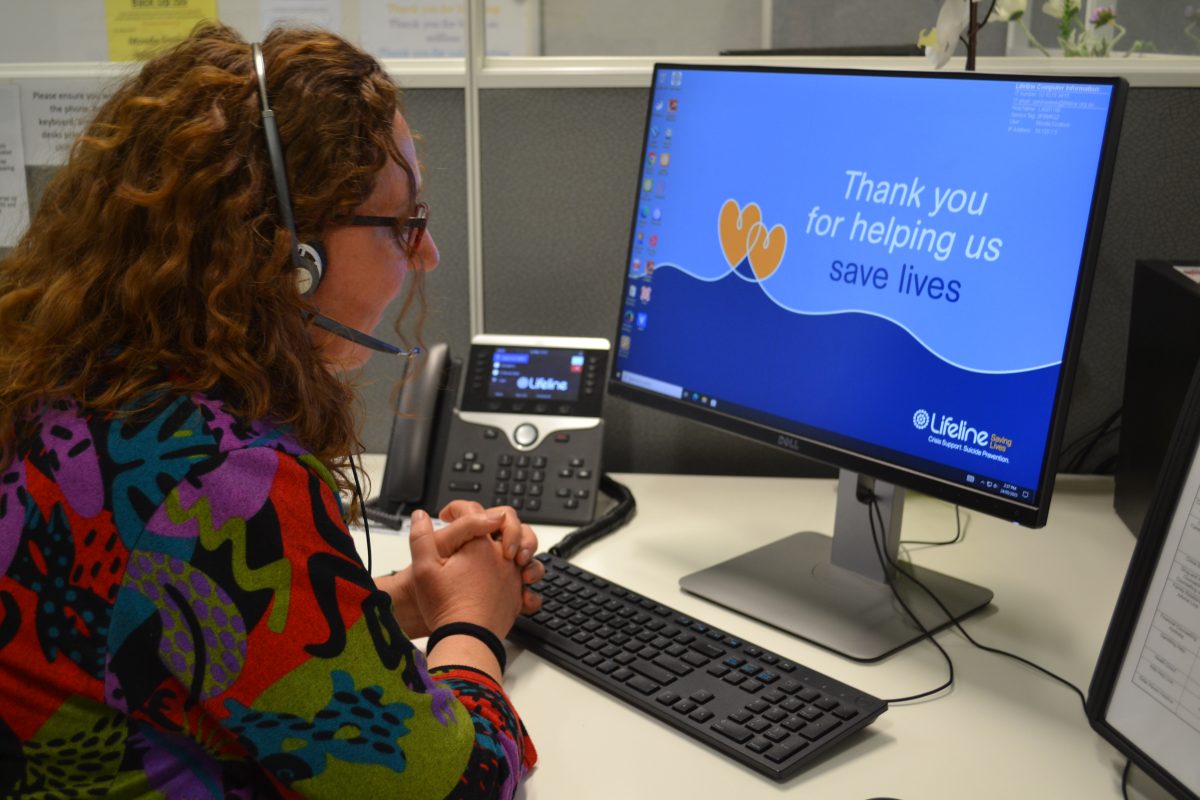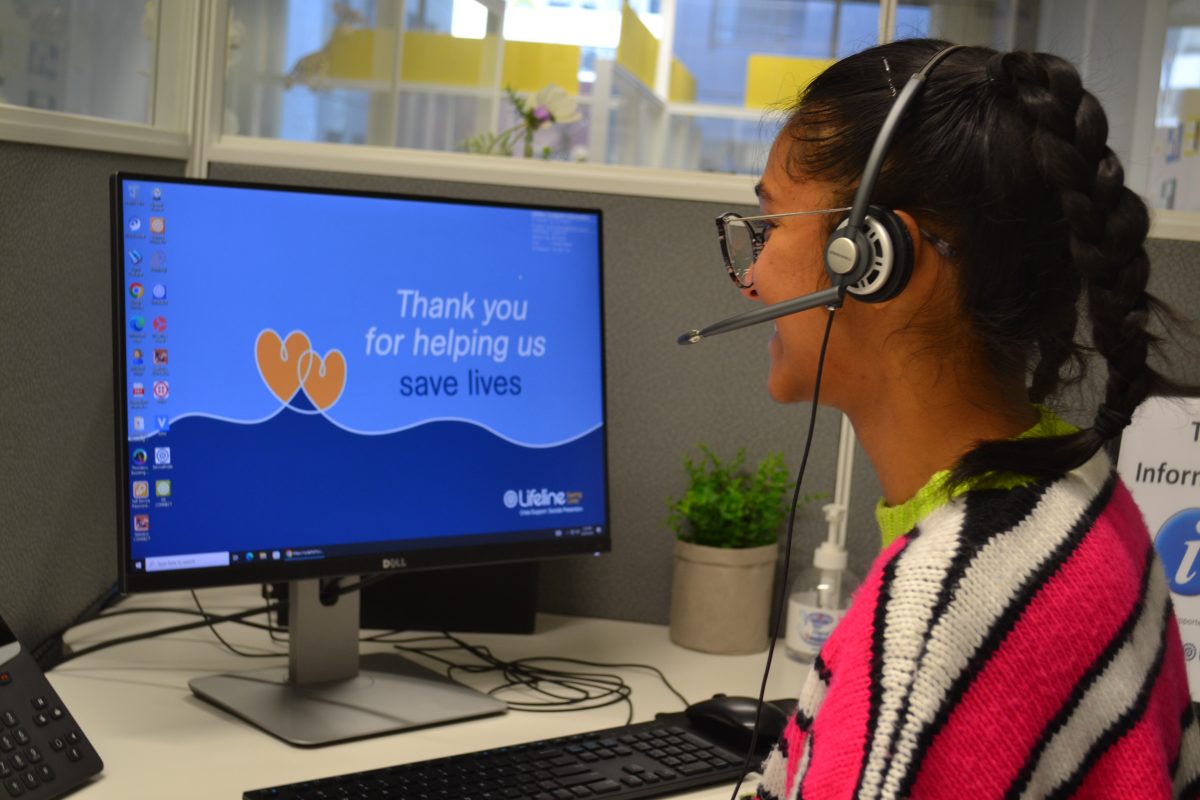
Lifeline’s crisis support volunteers come from all walks of life and form the backbone of the organisation. Photo: Lifeline.
From chefs to police officers, teachers to librarians, all genders, young and old, Lifeline’s volunteer crisis supporters come from every walk of life.
Other than the language and digital literacy needed to take calls, there are few hard and fast prerequisites, according to Lifeline Canberra programs manager Alisha Tarrant.
“We very much believe that with a willingness and openness to unlearn, learn and use the skills we teach, any human being can become a crisis support volunteer,” she says.
“A lot of the skills required to be there for a person and hear them in their moment of crisis, are very much human life skills.
“None of us are experts. We’re not here to replace professional therapeutic services, and we don’t need to have experience in a related field to be excellent at this job.”
Before the Black Summer Bushfires and COVID, the national crisis support provider fielded 2000 to 2500 calls a day. These days the average is more around the 3000 mark – a call about every 30 seconds.
Volunteers never know what to expect from the other end of the line – from someone navigating the darkest events of their life to the intensely lonely.
While not all calls are suicide related, they’re all important. So, from the first information session and through the three months of training, the onboarding process is thorough, transparent and absolutely pressure free.
“We want as few surprises as possible,” Alisha says.
“Some people might come to the information session and realise they’re not in the right place to commit. That’s really the purpose of the sessions – to divulge all the information so potential volunteers can make informed decisions.
“For those who do embark on the journey, we do our best to equip them to take on what can be the most challenging, sometimes confronting and always incredibly fulfilling calls they’ll take with another human being.”

Lifeline volunteers field a call every 30 seconds on average – about 3000 calls a day. Photo: Lifeline.
Training is practical and layered with lots of practice using various techniques such as role play.
Volunteers learn about what the role is, and what it isn’t: that crisis support is not therapeutic work.
“You don’t get to know the people at the other end of the call; you get to hold space for them in what can be the worst time in their lives,” Alisha says.
“It’s an immensely privileged position to be in, to hear someone else’s story in that way.”
Importantly, volunteers are also encouraged to look after their own wellbeing – not just on shift, but in life.
“Lifeline is a service for the community, provided by the community. We have a long tradition of being a very strong and dedicated volunteer community,” Alisha says.
“Over the years we’ve had to evolve to include paid employees, to lessen the likelihood that important calls go unanswered. But volunteers are 100 per cent our backbone. We know that if we can ensure this job is a value add in their lives, they’re more likely to feel that fulfilment and stay long term.
“And indeed, the majority of our volunteers talk about how the work enhances their communication skills in all aspects of life and their self-awareness.”
Recruiting volunteers is an ongoing job, but never because the work is unfulfilling.
“Often it’s a hard decision for our volunteers to leave, but life happens, and we know that,” Alisha says.
“Everyone comes to our information sessions with a genuine interest, but often the decision to volunteer becomes a question of timing, and whether or not you can fit it around your commitments. Sometimes it works, sometimes you realise it might be better to wait six months or a year or even longer.
“We make no secret about how much of a commitment it is, but if you have the slightest inkling you might want to do it, there’s no harm in finding out. It may end up being one of the best, if not the best, thing you’ve ever done.”
The next Lifeline crisis supporter information session takes place via Zoom from 6 pm to 7 pm on 30 November, with training rounds beginning in early 2024.
To register your interest or learn more about becoming a telephone crisis support volunteer, email TCSVolunteerEnquiries@act.lifeline.org.au





















